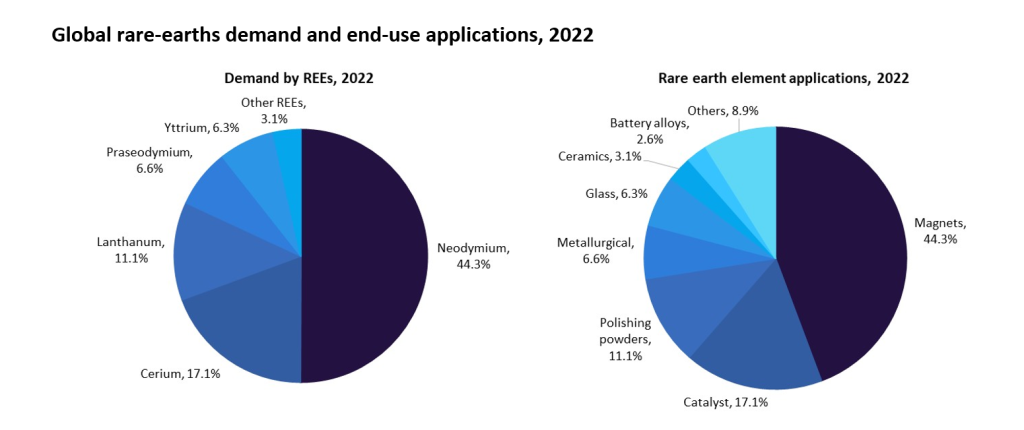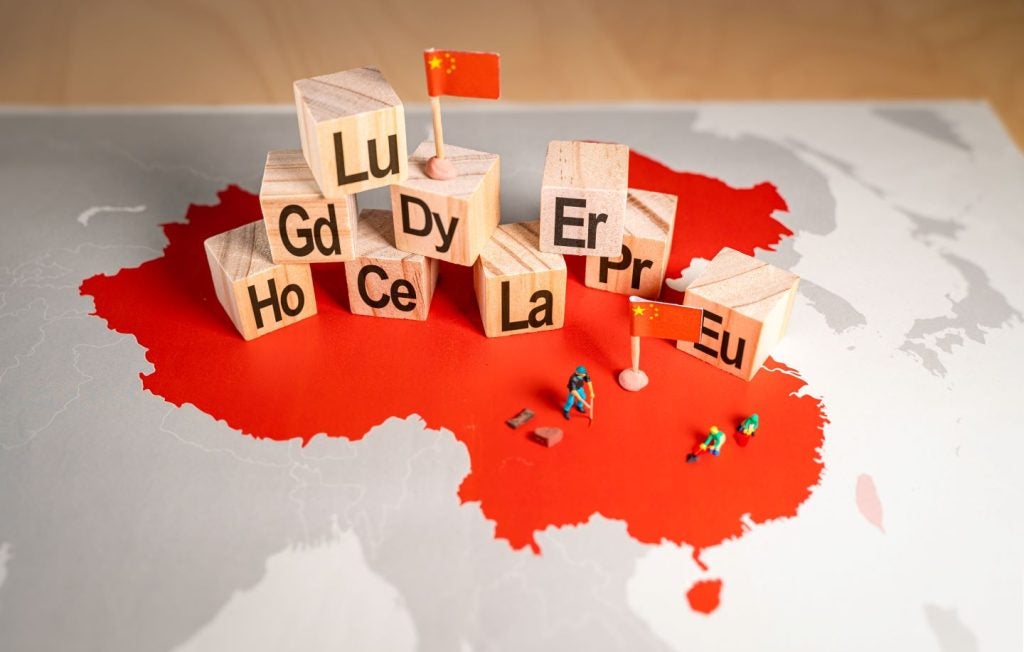The global rare earths industry is a complex landscape dominated by China, creating a critical need for global supply chain diversification. This sector faces challenges, but its future hinges on innovation, sustainable mining, and international cooperation to ensure a secure supply of these essential elements.
Global mine production of rare earths reached an estimated 350,000t of rare earth oxide (REO) equivalent in 2023. China currently dominates global rare earth production, accounting for over 69% in that same year. This dominance extends beyond mining, with China also processing nearly 90% of the world's rare earth elements. While China's lower production costs and advanced refining capabilities contribute to this dominance, concerns arise from its production quotas and export restrictions.
Recognising the risks associated with over-reliance on China, countries are diversifying their supply chains. The US, the second largest and accounted for 12.3% of global production in 2023, is leading this effort, with the reopening of the Mountain Pass mine being a significant step. Other countries such as Madagascar and Uganda are exploring their own reserves, aiming to challenge China's monopoly. However, competing with China's low-cost production and established supply chain remains a significant hurdle.
Burma is the world’s third largest and accounted for 10.9% of global production in 2023. However, Burma's rare earth industry is shrouded in controversy, with a significant portion of production coming from unregulated small-scale miners linked to armed militia groups. These operations often disregard environmental regulations and lack proper remediation plans. Other key producers include Australia, Thailand and India; these countries accounted for a collective 8% of global production in 2023.
Australia, with substantial reserves, is developing its processing capabilities. Lynas, a prominent Australian company, focuses on high-quality, differentiated rare earth products and expanding downstream processing. Other Australian companies, such as Northern Minerals and Arafura Resources, are targeting high-value rare earth elements such as dysprosium and terbium. Thailand plays a niche role in downstream processing while India, despite significant reserves, faces challenges in extraction, environmental regulations, and downstream development.

Securing a stable and sustainable supply of rare earths is crucial for future technological advancement and economic growth. This requires a multifaceted approach, including:
- Diversifying supply chains: reducing reliance on a single source of supply through investments in domestic production and partnerships with other countries.
- Promoting sustainable mining practices: minimising environmental impact and ensuring responsible sourcing of raw materials.
- Developing innovative technologies: improving extraction, separation, and recycling processes to enhance efficiency and reduce costs.









